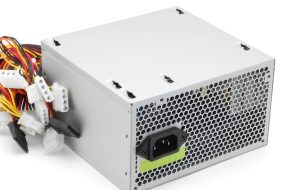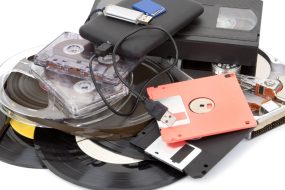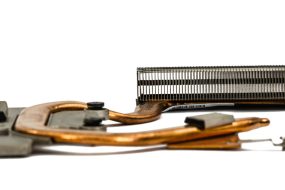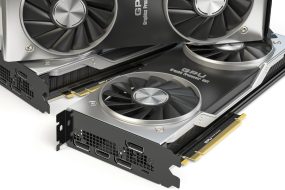
In the realm of computing, memory plays a vital role in ensuring smooth and efficient performance. Among the different types of memory, RAM (Random Access Memory) stands out as a fundamental component that directly impacts the speed and responsiveness of a system. In this comprehensive guide, we will delve into the intricacies of RAM, exploring its relationship with memory, conducting RAM memory tests, and uncovering the distinctions between RAM and other forms of memory.
The Importance of RAM in Computing
Understanding RAM
RAM, often referred to as memory, is a crucial element in modern computing systems. It serves as a temporary storage space that allows the CPU (Central Processing Unit) to quickly access and manipulate data required for executing tasks. Unlike long-term storage devices such as hard drives or SSDs (Solid-State Drives), RAM provides rapid read and write access to data, enabling the CPU to retrieve information swiftly and perform computations efficiently.
The Role of RAM in Performance
RAM’s significance in computer performance cannot be overstated. With an adequate amount of RAM, the system can store and access a larger volume of data without relying on slower storage devices. This allows for seamless multitasking, faster program execution, and enhanced overall user experience. On the other hand, insufficient RAM can lead to system slowdowns, lag, and even crashes when the available memory is exhausted.
The Distinction: RAM vs. Memory
While RAM is often used interchangeably with the term “memory,” it is essential to understand the distinctions between the two. Memory encompasses various forms of data storage, including both volatile (temporary) and non-volatile (permanent) types. RAM falls under the volatile category, offering fast and temporary storage that is accessible by the CPU. However, memory, as a broader concept, also encompasses long-term storage devices such as hard drives, SSDs, and even non-electronic mediums like tapes or optical discs.
RAM Memory Testing: Ensuring Reliability
To ensure optimal performance and reliability, it is crucial to conduct periodic RAM memory tests. These tests assess the functionality and health of the RAM modules installed in a system. By identifying potential issues early on, such as faulty modules or compatibility conflicts, users can take necessary measures to address them and maintain their system’s stability. Here are three actionable tips for conducting effective RAM memory tests:
1: Utilize Diagnostic Software: Various diagnostic software tools are available that can comprehensively analyze the performance of your RAM. These tools can perform extensive memory tests, identify errors, and provide detailed reports on the health of your RAM modules.
2: Test Individual Modules: If your system has multiple RAM modules, it is advisable to test them individually. This allows you to pinpoint any specific modules that may be causing issues, facilitating targeted troubleshooting and replacement if necessary.
3: Maintain System Cooling: Overheating can adversely affect RAM performance. Ensure proper ventilation and cooling within your system to prevent excessive heat buildup, as high temperatures can lead to memory errors and instability. Regularly cleaning dust from cooling fans and heat sinks is also essential.
FAQs (Frequently Asked Questions)
Q1: Is memory the same as RAM?
A1: While the term “memory” is often used synonymously with RAM, it is important to note that memory encompasses both volatile and non-volatile forms of data storage. RAM specifically refers to volatile and fast-access memory, while memory can also include long-term storage devices.
Q2: How much RAM do I need for optimal performance?
A2: The required amount of RAM depends on the intended usage and the complexity of tasks you perform. For typical day-to-day tasks and casual gaming, 8GB to 16GB of RAM should suffice. However, memory-intensive applications such as video editing or 3D rendering may require 32GB or more for optimal performance.
Q3: Can I mix different types of RAM modules?
A3: Mixing different types or speeds of RAM modules can lead to compatibility issues and potentially cause system instability. It is recommended to use identical RAM modules to ensure proper functioning and compatibility.
Q4: Can I upgrade my computer’s RAM?
A4: In most cases, upgrading your computer’s RAM is possible and can significantly improve performance. However, it is essential to verify compatibility with your system’s motherboard and ensure proper installation procedures to avoid any damage.
Q5: How often should I conduct RAM memory tests?
A5: It is advisable to conduct RAM memory tests periodically, especially if you experience frequent system crashes, unusual slowdowns, or suspect RAM-related issues. Performing tests every few months can help identify and resolve potential problems proactively.
Conclusion
RAM, the dynamic and fast-access memory component of a computer system, plays a pivotal role in determining overall performance and user experience. By understanding the importance of RAM, conducting regular RAM memory tests, and addressing common queries surrounding memory and RAM, users can optimize their computing experience. Remember, with adequate RAM and periodic maintenance, you can ensure a smooth and efficient computing journey.









